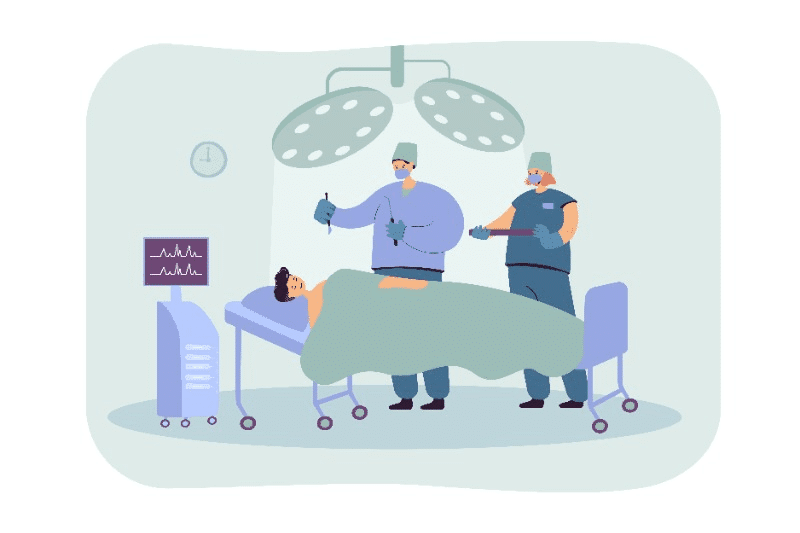Key Takeaways
-
Be cautious when using evening primrose oil alongside blood-thinning medications, as it may increase the risk of bleeding. Consult with your healthcare provider before combining these treatments.
-
Evening primrose oil might interact with antipsychotic medications and drugs, potentially affecting their effectiveness. It’s important to discuss this with your doctor and pharmacist if you are considering using both.
-
If you are scheduled for anesthesia, inform your healthcare provider about your use of evening primrose oil and other herbal products, as it could impact the anesthesia’s effects.
-
When taking nonsteroidal anti-inflammatory drugs (NSAIDs) for pain along with evening primrose oil, be aware of the potential for increased bleeding and discuss this combination with your healthcare provider.
-
Individuals using seizure-control medications should exercise caution when using evening primrose oil, as it might affect the medication’s efficacy. Consult with your doctor before using both concurrently.
-
If undergoing cancer treatment, consult with your healthcare provider before using evening primrose oil, as it may interact with the chemotherapy drugs and impact their effectiveness.
-
Evening primrose oil may lower blood pressure, so if you are on blood pressure medications or using it for menopause treatment, it’s important to monitor your blood pressure levels closely and consult with your doctor about potential interactions.
-
When considering supplements with similar effects to evening primrose oil, such as fish oil, consult with a healthcare professional or pharmacist to understand potential interactions and ensure safe usage.
-
Be aware of potential evening primrose oil interactions, and check out our other articles discussing “what vitamins shouldn’t you take together.”
1. Blood Thinning Medications
Evening primrose oil has the potential to increase the risk of bleeding when used in conjunction with blood thinners such as warfarin or aspirin. This is due to its ability to affect platelet aggregation, which can interfere with blood clotting.
Menopausal women, who often experience menopausal symptoms like hot flashes, changes in menstrual cycle, and mastalgia, may turn to evening primrose oil for relief. However, it’s crucial for postmenopausal women considering using this supplement to be aware of its interaction with blood thinning medications.
Consulting a healthcare professional or doctor before incorporating evening primrose oil into their treatment regimen is highly advisable for individuals taking anticoagulant medicines. This step ensures that researchers receive personalized medical advice tailored to their health condition and medication regimen.
2. Antipsychotic Medications
Evening primrose oil may interact with antipsychotic medications, potentially impacting their efficacy in managing psychological symptoms. This interaction could compromise the treatment of mental health conditions, as evening primrose oil might interfere with the mechanisms of antipsychotic drugs.
Patients using antipsychotic medications should engage in a discussion with their healthcare provider or pharmacist regarding the use of evening primrose oil. It is crucial to ensure that treatment-medical interactions could worsen psychiatric disorders or syndromes.
In some cases, atopic eczema has been managed using both evening primrose oil and antipsychotic medications under careful supervision by medical professionals. However, this practice requires close monitoring due to potential drug interactions and side effects such as lipoid pneumonia.
Individuals undergoing treatment for mental health conditions must prioritize open communication with their healthcare team when considering complementary therapies like evening primrose oil. Collaboration with a healthcare provider can help mitigate risks associated with possible interactions and ensure comprehensive care for psychological well-being.
3. Anesthesia

Inform your anesthesiologist about any evening primrose oil med usage before undergoing surgery. Evening primrose oil may impact anesthesia drugs during surgical procedures, leading to complications. The interaction between evening primrose oil and anesthesia (med) could affect the metabolism or effectiveness of the anesthesia drugs.
Patients must disclose their use of evening primrose oil, as it can influence how anesthesia is administered and metabolized in their bodies. This information allows medical professionals to make informed decisions about dosage and type of anesthesia used, ensuring patient safety during surgical procedures.
In a study published in “Anesthesia & Analgesia,” researchers found that herbal supplements like evening primrose oil can impact the pharmacokinetics of certain anesthetic drugs, potentially affecting patient care and outcomes. Patients’ management during surgery necessitates a comprehensive understanding of all substances they use, including natural remedies like evening primrose oil.
Healthcare providers must thoroughly analyze potential interactions between evening primrose oil and specific anesthesia medications. This is essential for ensuring patient safety and preventing adverse effects during surgery.
4. Nonsteroidal Anti-inflammatory Drugs (NSAIDs)
Evening primrose oil has the potential to amplify the effects of NSAIDs, elevating the risk of side effects such as gastrointestinal discomfort. This combination may particularly impact gastrointestinal health, increasing vulnerability to ulcers and other digestive issues.
For individuals with conditions like arthritis or diabetic neuropathy who rely on NSAIDs for pain management, caution is advised when considering the concurrent use of evening primrose oil. The linolenic acids present in evening primrose oil could interact with NSAIDs and affect their efficacy, making it essential for individuals to consult healthcare professionals before combining these two substances.
In a study published in “The Journal of Rheumatology,” researchers found that patients using evening primrose oil alongside NSAIDs experienced improved symptoms of rheumatoid arthritis compared to those solely on NSAID therapy. However, this positive effect was accompanied by an increase in minor adverse events like skin reactions.
Given these insights, it’s crucial for individuals dealing with autoimmune diseases or chronic fatigue syndrome and contemplating incorporating evening primrose oil into their routine to be mindful of its potential interactions with nonsteroidal anti-inflammatory drugs.
5. Seizure-Control Medications
Interactions between evening primrose oil and seizure medications can impact seizure control. Evening primrose oil may alter the effectiveness of antiepileptic drugs, potentially affecting the individual’s seizure threshold.
Consulting a healthcare provider before using evening primrose oil while on seizure-control medications is crucial to ensure that there are no adverse effects or interactions that could compromise the management of epilepsy. Individuals need to be aware of potential alterations in their medication’s efficacy when combined with evening primrose oil, as this could have serious implications for their health.
It’s essential to note that any adjustments or additions to a treatment regimen should only be made under the guidance and supervision of a qualified healthcare professional. This ensures that all possible risks and benefits are thoroughly considered based on an individual’s medical history and condition.
6. Chemotherapy Drugs
Evening primrose oil may interfere with chemotherapy drugs, potentially affecting the effectiveness of cancer treatment. Clinical studies have shown that certain components in evening primrose oil could interact with chemotherapy medications, leading to reduced efficacy or increased side effects.
In a clinical trial involving women with breast cancer, it was observed that evening primrose oil had the potential to impact the metabolism of certain chemotherapy drugs. This interaction could compromise the intended therapeutic outcomes and pose risks to patients undergoing cancer treatment.
Given these findings, it is crucial for individuals considering the use of evening primrose oil alongside chemotherapy treatments to engage in thorough discussions with their oncologists. The decision-making process should involve an assessment of potential benefits against possible risks and adverse interactions.
Caution is strongly advised when contemplating incorporating evening primrose oil into a regimen that includes chemotherapy drugs. Healthcare professionals must view all medications and supplements their patients use to ensure optimal treatment outcomes and minimize any negative impacts on health.
7. Blood Pressure Medications

Evening primrose oil may interact with blood pressure medications, potentially affecting their efficacy and causing complications. This interaction can lead to an increase or decrease in blood pressure, which may be harmful for individuals managing hypertension.
Before combining evening primrose oil with blood pressure medications, it is crucial to consult a healthcare professional. They can provide personalized advice based on individual health conditions and medication.
The potential interactions between evening primrose oil and drugs used to manage hypertension highlight the importance of seeking medical guidance when considering complementary therapies alongside prescription drugs for blood pressure management.
It’s important to note that while some people may experience no adverse effects from combining these two types of treatments, others may face significant health risks. Therefore, it is essential to prioritize safety by seeking professional medical advice before using evening primrose oil alongside any medication for high blood pressure.
8. Supplements with Similar Effects
When considering evening primrose oil, it’s important to exercise caution when combining it with other supplements that have similar effects. There is a potential for interactions between evening primrose oil and supplements that target similar health concerns. It is advisable to consult a healthcare provider before using multiple supplements with effects akin to those of evening primrose oil.
It’s crucial to be mindful of the potential drug interactions between evening primrose oil and other dietary supplements or herbal products. Consulting a healthcare professional can provide insights into the possible adverse effects data and help understand how these interactions may affect an individual’s health.
Healthcare providers can offer guidance on the efficacy of combining certain supplements, providing valuable information about any documented side effects or adverse effects associated with specific supplement combinations. This personalized approach ensures that individuals are well-informed about the potential risks and benefits of using various products concurrently.
Frequently Asked Questions
Can evening primrose oil interact with blood-thinning medications?
Yes, evening primrose oil may increase the risk of bleeding when taken with blood thinners like warfarin or aspirin. It’s important to consult a healthcare professional before combining these substances.
Does evening primrose oil interact with antipsychotic medications?
Evening primrose oil might interact with antipsychotic medications, potentially increasing the risk of seizures in some individuals. Consulting a healthcare provider is crucial before using them together.
Is it safe to take evening primrose oil before anesthesia?
Using evening primrose oil before anesthesia could potentially increase the risk of bleeding during and after surgery. Always inform your healthcare team about all supplements and views you are taking before any surgical procedures.
Can I take NSAIDs along with evening primrose oil?
Combining NSAIDs with evening primrose oil may elevate the risk of bleeding or bruising due to their potential blood-thinning effects. Seek advice from a healthcare professional beforehand.
Are there interactions between seizure-control medications and evening primrose oil?
There’s a possibility that taking seizure-control medications alongside evening primrose oil might reduce the effectiveness of either substance. Consult your doctor for personalized guidance on this potential interaction.

